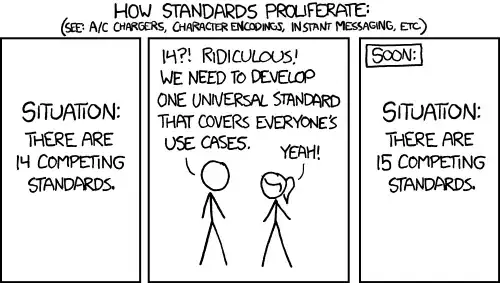What are the common or usual APIs (or libraries) in C or C++ for the IoT, in the sense of having a documentation, a set of programming interfaces? (Like e.g. POSIX is for operating systems, Qt is for GUI, etc....).
This short page motivates my question (I'm interested in developing static source code analysis tools for IoT). I'm not only looking for legal standards, but also for commonly used APIs or libraries -in C or C++, with existing header files for them- in various industrial domains. I'm not interested in Web APIs (conventions defining some HTTP requests) or just in network protocols without any API or library implementing them.
(so I am not interested in developing myself IoT applications, but I want to develop software engineering tools working & analysing source code to help developers of IoT software)
I could even be interested by industry specific IoT APIs or libraries, e.g. in healthcare, logistics, transportation, smart grids, smart buildings, etc; as long as as it is a C or C++ API or library.
I am in a research group working on static source code analysis, and we would like to develop tools analyzing C or C++ source code, to help the IoT software developer.
However, I need to find out a way to be funded before working on this.
We suggest to develop a specialized tool (preferably open source, above existing technologies), for developers & engineers writing source code (in C, C++, and Ada if needed...) targeting IoT platforms. This tool will be integrated in the targeted software development kit. This tool could assist IoT software developer by analysing and checking the validity of the source code against coding rules, invariants, and good practices specific to these software frameworks. The main objective is to enhance the software quality and to accelerate the time to market. If relevant, the tool could perform specific source code optimizations to enhance the software performance and/or to decrease the code size.
NB. This IoT Eclipse webpage is listing several standards. I am interested in APIs & libraries implementing them (and any other IoT de facto domain specific standard), if developing source code analyzers for them is worthwhile.
